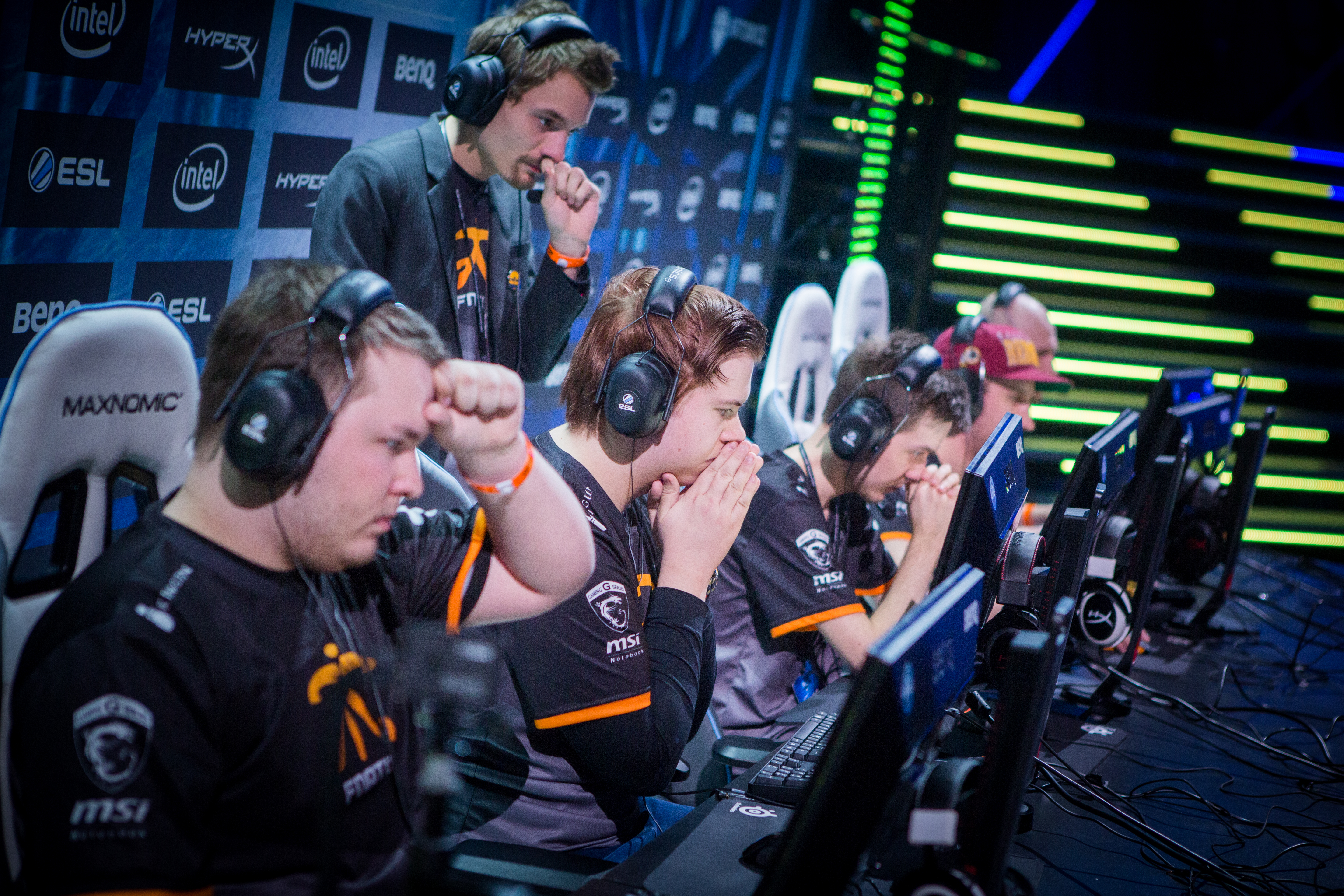Valve explains why it's restricted coaches at CS:GO tournaments
Valve says a coach recently emailed an event organizer demanding more access to his team during matches.

Valve imposed a new rule for Valve-sponsored CS:GO events yesterday that forbids coaches from interacting with players while matches are underway: They may now talk to players only during pregame warm-ups, timeouts, and at halftime. The problem, Valve explained, is that unrestricted access to teams during matches effectively makes coaches a sixth player, and “since the goal of our events is to identify the best five-player CS teams that exhibit the best combination of all CS skills, the current participation of coaches in the game is not compatible with that goal.”
Not everyone agrees with Valve's assessment of the situation, however. A number of analysts and commentators took to Twitter to express displeasure with the new rule, some saying it's simply unnecessary and others claiming that it's outright damaging to the game.
New coaching rule is pathetic. Valve was never good at pushing CS:GO forward, but why send it rolling back downhill any further?August 17, 2016
It's quite telling that there's not one pro player, journalist, commentator or [of course] coach that agree with this new coaching rule.August 17, 2016
The idea that coaches allow teams to be made of 5 brainless aimers is also dumb, and if that's your opinion it's why you're not good at CSAugust 18, 2016
Let the rest of us continue to grow your mismanaged game for you.August 17, 2016
Nonetheless, Valve seems determined to stick with the change. The ruling won't force the change upon all tournaments, but it will affect the Majors, which as you might expect are the largest tournaments in CS:GO. Valve began awarding $1 million in prize money for each major tournament this year.
Valve clarified its position on the ruling in a follow-up statement in which it said that it has spoken with pro teams about their coaches at past Majors, and had been assured that their focus was "on activities traditionally associated with coaching, such as preparation, support, opponent study, etc.”
“We were always open with them about our opinion that distributing the work of 5 players (e.g. keeping track of the economy, calling plays and mid-round calls, and general situational awareness) across 6 people was not in line with our goals, one of which was to make it possible for new teams to emerge and compete at the highest levels. We had no concerns with the other coaching responsibilities and at the time any potential harm was hypothetical,” the statement says. “Since then it has become apparent that teams are, in fact, transitioning away from fielding players that have a wider breadth of skills and instead relying on coaches to handle some of that work.”
Ironically, what prompted the new rule was an email from a team coach, sent to an event organizer and forwarded to Valve, seeking a greater level of access to the players during matches. “The forwarded email made it clear that despite the conversations we had with them, teams were further investing in coaching in a way that was contrary to the goals of the Majors and the concerns we had expressed. It was important to make a decision before teams further invested in coach IGLs and we decided to rein in the role of coaching in the next Major to exclude player responsibilities,” Valve wrote.
“We understand that there will be some short term disruption for teams that have made an investment in coach IGLs [In-Game Leader],” it concluded. “However, we intend the Majors and Minors to be events that can be won by any team of 5 players that demonstrate excellence in all skills of CS and this adjustment is intended to ensure that this remains true.”
The biggest gaming news, reviews and hardware deals
Keep up to date with the most important stories and the best deals, as picked by the PC Gamer team.
“Short term disruption” may be understating things somewhat: As HLTV pointed out, a number of high-profile teams including Natus Vincere, NiP, Liquid, mousesports, and FaZe make use of coaches, and losing access to them so suddenly is bound to have an impact on their performance. It won't take long to find out just how much, and which teams are best able to overcome it: ESL has adopted the rule as well, meaning that the first CSGO Major to operate under this new rule will be ESL One New York, which runs over the weekend of October 1-2.

Andy has been gaming on PCs from the very beginning, starting as a youngster with text adventures and primitive action games on a cassette-based TRS80. From there he graduated to the glory days of Sierra Online adventures and Microprose sims, ran a local BBS, learned how to build PCs, and developed a longstanding love of RPGs, immersive sims, and shooters. He began writing videogame news in 2007 for The Escapist and somehow managed to avoid getting fired until 2014, when he joined the storied ranks of PC Gamer. He covers all aspects of the industry, from new game announcements and patch notes to legal disputes, Twitch beefs, esports, and Henry Cavill. Lots of Henry Cavill.

